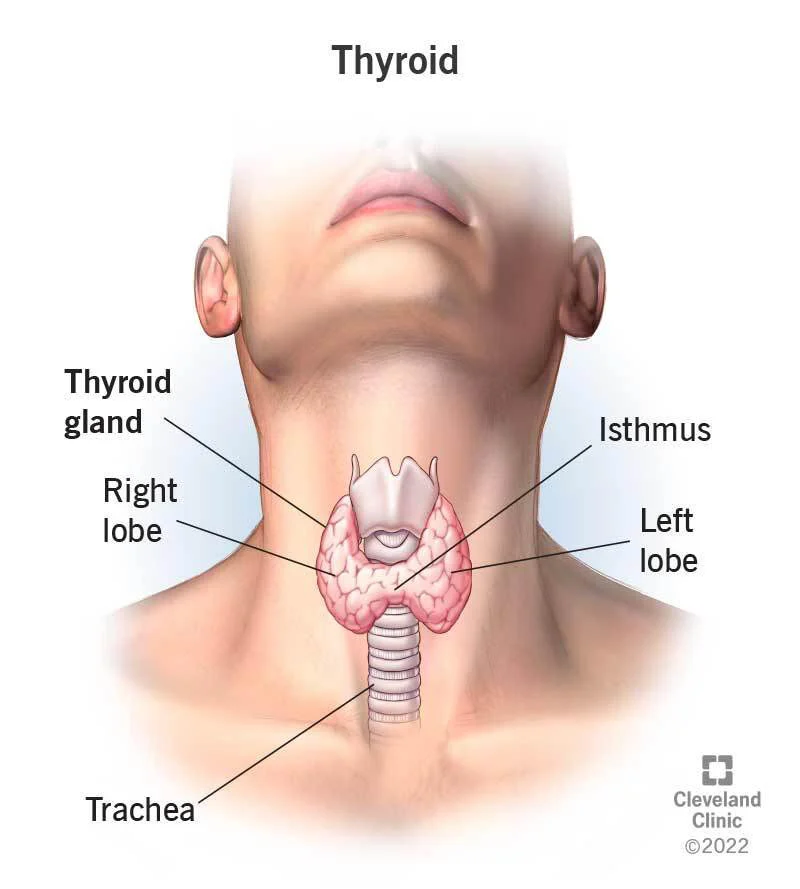The thyroid is such a small part of your body, yet it heavily influences your overall health. Not all patients are aware of the functions this little gland provides, but January’s Thyroid Awareness Month serves as a great opportunity to highlight its importance.
What is the Thyroid?
According to NCBI, the thyroid “plays a major role in the metabolism, growth, and development of the human body. It helps to regulate many body functions by constantly releasing a steady amount of thyroid hormones into the bloodstream.” It is even capable of adjusting this hormone production when needed, such as when you are growing or pregnant.
The hormones released by your thyroid include triiodothyronine (T3) and thyroxine (T4). Both of these hormones play an important role in regulating weight, energy levels, internal temperature, skin, hair, nail growth, and more.
The thyroid is located on the front of your neck in a butterfly shape under your voice box – near the Adam’s apple.

Who can be Affected by Thyroid Dysfunction?
Anyone can be impacted by thyroid dysfunction, though it is 5 to 8 times more common in women. It is believed 20 million Americans could be living with thyroid dysfunction. It is believed that 60% of those currently living with thyroid dysfunction are not yet diagnosed.
There is a wide variety of symptoms for thyroid issues. Thus record-keeping and symptom reporting to your medical provider is crucial in receiving a proper diagnosis. The causes of thyroid dysfunctions are largely unknown.
How are Thyroid Issues Tested?
A simple blood test can check for thyroid dysfunction. This can help check for Hyperthyroidism (overproduction of hormones) or Hypothyroidism (underproduction).
Because your thyroid releases hormones triiodothyronine (T3) and thyroxine (T4), these can be measured in the blood test. If hormone levels are lower than normal, it may be a sign your thyroid is not productive enough. If hormone levels are too high, that can be a problem too as an overactive thyroid can signal problems years into the future.
In some situations, images on an ultrasound may be taken of your thyroid to visually exam it.
What Happens if your Thyroid is not Functioning Correctly?
When the thyroid becomes dysfunctional you can produce too much or too little of the thyroid’s two hormones.
If your thyroid is producing too little, it can increase your risk of heart disease due to increased bad cholesterol levels brought on by the hormone shortage. Your thyroid may also swell larger, causing pain when swallowing among other less common symptoms.
If your thyroid is producing too much it can result in unintended weight loss, a fast or irregular heartbeat, increased fatigue, hunger, sweating, nervousness, and other health complications.
There is medication available for people with hypothyroidism (they underproduce hormones) that can be a replacement for your body’s natural hormone production.
For those with hyperthyroidism, there is medication available that can block the number of hormones your body produces. Additionally, radioactive iodine, beta-blockers, and surgery are among other potential treatment strategies for overproduction.
To learn more about your thyroid, visit ThyroidAwareness.com


